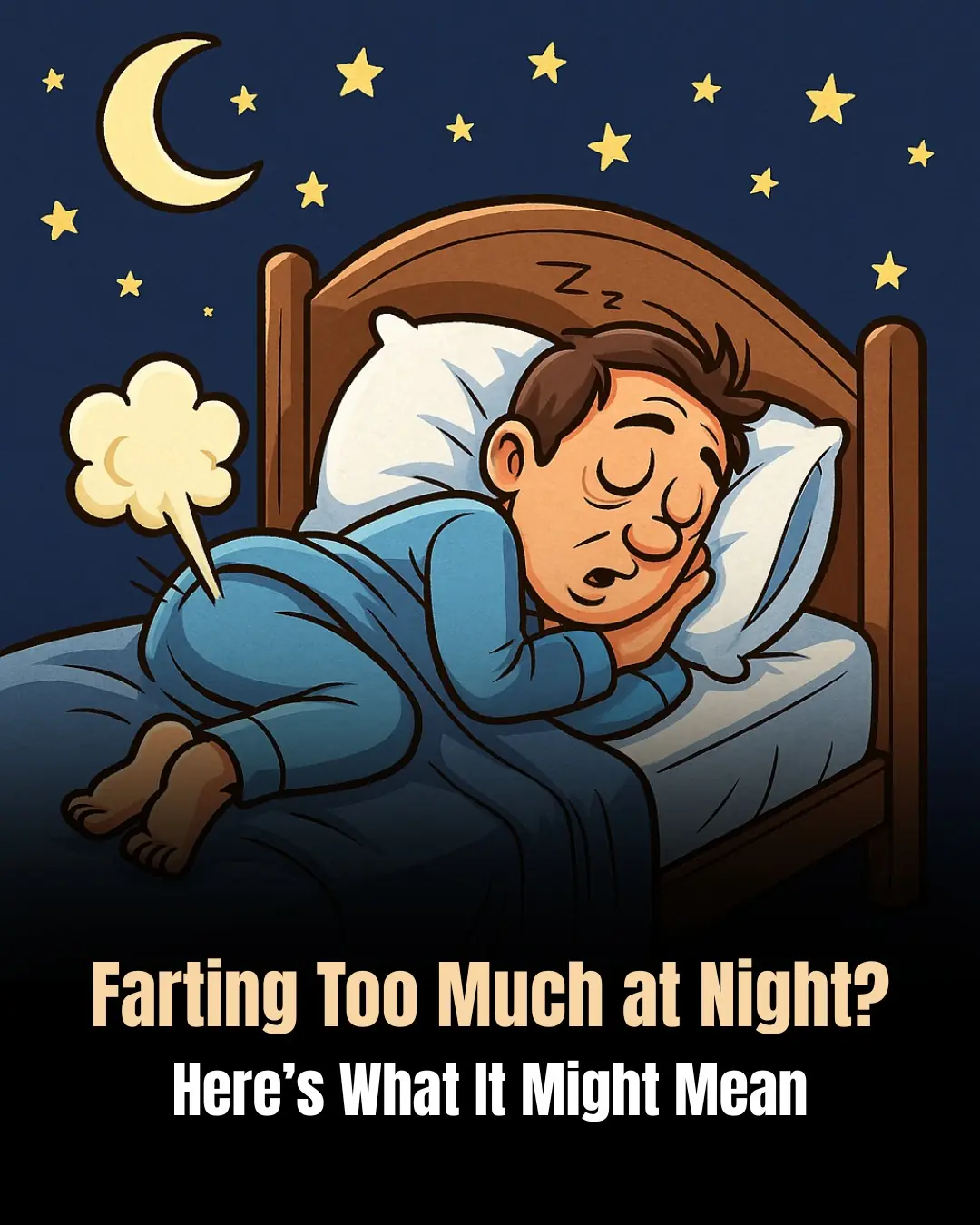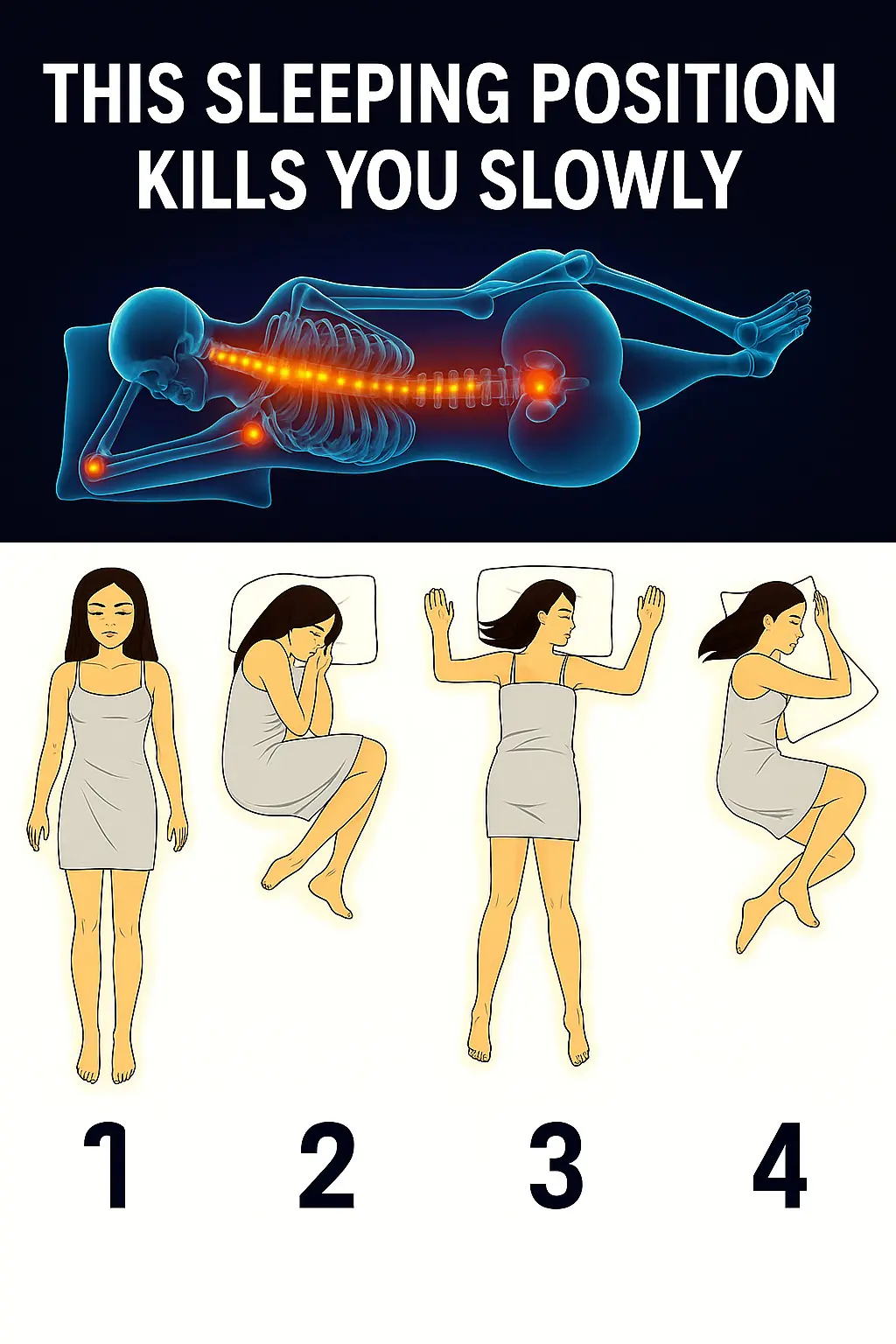
Farting Too Much at Night

Farting Too Much at Night? Here’s What It Could Mean
Passing gas at night might feel awkward or even disruptive, but it’s often a sign that your digestive system is just doing its job. Still, if it becomes excessive or unpleasant, it could signal something more.
Let’s explore why it happens—and how you can manage it.
🌀 1. It’s Normal: Digestion Never Sleeps
Your gut bacteria work all day to break down food, creating gas as a natural byproduct. During the day, you’re often upright, moving, and holding tension in your muscles—including your anal sphincter. But at night, your body relaxes, and so does that muscle… which means gas gets released more freely.
🥦 2. Your Diet Plays a Huge Role
Certain foods are known to increase gas production due to fermentation:
-
Beans, lentils, broccoli, cabbage, onions, garlic
-
Dairy, especially if you’re lactose intolerant
-
High-fiber grains and fruits
-
Carbonated drinks (yes, soda and sparkling water!)
-
Big, late dinners that don’t fully digest before bed
💨 3. You Might Be Swallowing Air
Every time you:
-
Chew gum
-
Sip through a straw
-
Talk while eating
-
Smoke
…you’re swallowing air. That extra air needs to escape—and it often does at night.
🚩 4. It Could Be a Digestive Condition
Some health conditions cause excessive gas:
-
Lactose or fructose intolerance
-
Irritable Bowel Syndrome (IBS)
-
Small Intestinal Bacterial Overgrowth (SIBO)
-
Celiac disease
-
Constipation slows digestion, giving gas more time to build up
If your nighttime gas is new, frequent, or comes with other symptoms like bloating or pain, it’s worth talking to a healthcare professional.
🛠️ How to Reduce Nighttime Gas
🍽️ Simple Diet Fixes
-
Eat dinner 2–3 hours before bed
-
Keep a food diary to track your triggers
-
Consider a low-FODMAP diet (under a professional’s guidance)
-
Eat slowly, chew thoroughly, and avoid eating while distracted
-
Skip gum, straws, and fizzy drinks
💧 Lifestyle Changes That Help
-
Stay hydrated to support digestion
-
Take a short walk or do light yoga after meals
-
Sleep on your left side—it helps gas move through your system more easily
💊 Over-the-Counter Options
-
Simethicone (Gas-X) helps break up gas bubbles
-
Beano (alpha-galactosidase) reduces gas from beans/veggies
-
Activated charcoal may reduce odor
-
Lactase enzyme if you’re sensitive to dairy
🧘♀️ Manage Stress and Habits
-
Stress during meals can disrupt digestion—try eating mindfully
-
Quit smoking and avoid constant gum chewing or straw use
-
Practice relaxation techniques to ease digestion overall
⚠️ When to See a Doctor
See a doctor if your gas is:
-
New or unusually foul-smelling
-
Accompanied by pain, bloating, diarrhea, or constipation
-
Linked to conditions like IBS, Crohn’s disease, or celiac
A dietitian can also help you pinpoint and manage dietary triggers.
✅ Tried-and-True Tips at a Glance
| Tip | Why It Works |
|---|---|
| Early, smaller dinners | Helps digestion before sleep |
| Try low-FODMAP plan | Identifies food-based gas triggers |
| Light activity after meals | Boosts gut movement and motility |
| OTC aids (Beano, Gas-X) | Reduces gas formation and discomfort |
| Eat mindfully | Less air swallowed, easier digestion |
| Sleep on your left side | Eases gas movement through intestines |
| Talk openly about it | Reduces stress and normalizes the issue |
Final Thoughts
Nighttime gas is usually a normal part of digestion, but it doesn’t have to ruin your sleep or your confidence. With a few simple changes to your diet, habits, and sleep position, you can cut down on excess gas and sleep more comfortably.
And if something feels off, don’t hesitate to reach out to a healthcare provider.
Just read: Farting Too Much at Night? Here’s What It Could Mean
Up next: Manager Had to Hire a New Employee — What Happened Next Will Surprise You
News in the same category


Stomach Bug Sickens Over 140 People on Caribbean Cruise, Forcing Passengers and Crew to Isolate in Cabins

🌘 The Longest Total Solar Eclipse of the Century Is Coming — August 2, 2027

🌠 Twin Meteor Showers Set to Illuminate the Night Sky July 29–30, 2025 🌠

The insights your finger length offer about your personality

The Deadly Beauty of Lake Natron: Where Nature Turns to Stone—And Flamingos Call It Home

Milaf Cola: The World’s First Date-Based Soda Could Revolutionize the Soft Drink Industry

Check Your Fridge—This Popular Yogurt Brand Was Just Recalled for Plastic Contamination

Mother and teen daughter discovered dead after emergency call went unanswered for four months

Little girl who looked 8 months’ pregnant because of deadly disease is saved thanks to dad’s kidney donation

Truth behind viral statement after married CEO caught with employee on Coldplay kiss cam

Over 60 killed after fire rips through newly opened mall in Iraq following AC explosion

CEO CAUGHT IN AFFAIR WITH EMPLOYEE DURING COLDPLAY CONCERT

Airport remains shut down following fireball plane crash

Why Are My Veins Suddenly Bulging and Visible?

Volcano Eruption Triggers Tsunami Alert and Disrupts Flights in the Region

Mum wakes to find five-year-old daughter dead beside her

21-year-old congressional intern shot dead

Shania Twain’s Journey from Poverty to Music Stardom
News Post

💗 Pink Oreo Dream Bars

🍓 Decadent Chocolate Strawberry Cake

7 Things That Happen To Your Body When You Don’t Have Sex For A While

Why are your veins suddenly bulging and visible?

7-Eleven Employee Dies After Being Left Brain-Dead in Shocking Incident Involving Manager

Stomach Bug Sickens Over 140 People on Caribbean Cruise, Forcing Passengers and Crew to Isolate in Cabins

🌘 The Longest Total Solar Eclipse of the Century Is Coming — August 2, 2027

🌠 Twin Meteor Showers Set to Illuminate the Night Sky July 29–30, 2025 🌠

K9 dog wouldn’t stop barking at room 207 in a hospital – what they found inside was horrifying

Transform Your Day with the Ultimate Almond Banana Avocado Smoothie

Sip Strength Before Sleep: The Cucumber & Pomegranate Elixir for Unstoppable Vitality at Any Age

Nature’s Power Trio: Garlic, Honey, and Cloves for Vibrant Wellness

Dog waiting to be adopted ‘cries’ every night – shelter posts sad photo as one last hope

The Hidden Power of Prickly Lettuce: The Unpretentious Wonder of Nature ....

🍫 Triple Chocolate Drip Cake with Truffles & Ganache Drip

My neighbor requested that I care for her 6 children – I called children services a couple of hours after she left

Flaxseeds Sleeping Mask That Will Transform Your Skin

At 60, I Healed Cancer, High Blood Pressure, Diabetes, and Poor Circulation – Thanks to This Natural Drink

The story behind the tiny pocket on your jeans
